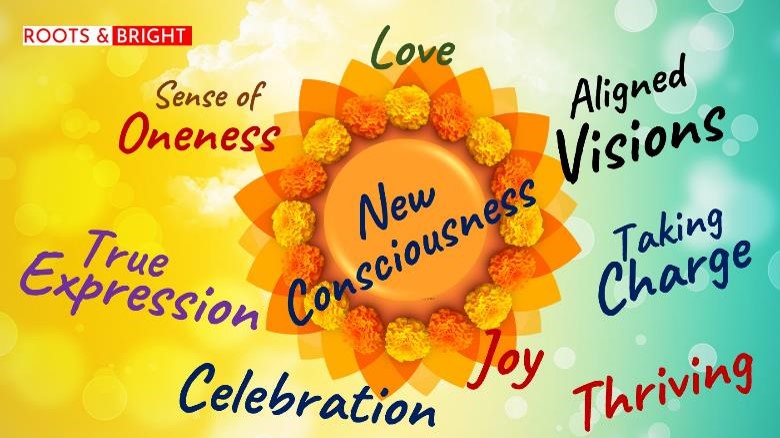Introduction:
Spiritual counseling is a specialized form of counseling that delves into the spiritual dimensions of an individual’s life. It recognizes that people have an innate need for meaning, purpose, and a connection to something greater than themselves. Unlike traditional counseling, which may focus primarily on psychological or emotional well-being, spiritual counseling encompasses a broader perspective that includes the exploration of one’s beliefs, values, and existential questions.
The process often involves an open and non-judgmental dialogue between the individual seeking counseling and the spiritual counselor. It may touch upon topics such as personal growth, the search for purpose, existential concerns, and the integration of spiritual practices into daily life. Spiritual counselors respect diverse belief systems and may draw inspiration from various religious and spiritual traditions, as well as secular philosophies.
Practices employed in spiritual counseling can include mindfulness techniques, meditation, prayer, visualization, and other contemplative exercises. These tools are used to help individuals deepen their self-awareness, explore their inner world, and foster a greater connection to their spirituality. The ultimate goal is to support individuals in finding a sense of inner peace, resilience, and alignment with their higher values.
Spiritual counseling can be sought by individuals facing various life challenges, transitions, or those simply seeking a deeper understanding of themselves and their place in the world. It provides a safe and supportive space for individuals to explore their spiritual journey, fostering a holistic approach to well-being that integrates the psychological, emotional, and spiritual aspects of life.
The Empowering Process of Spiritual Counseling for Personal Discovery:
Spiritual counseling is a collaborative and exploratory process between the individual and the counselor, typically unfolding through several key steps. The initial assessment session involves discussions about the individual’s concerns, goals, and an exploration of their spiritual background, beliefs, and values. Establishing trust and rapport is foundational, creating a safe space for open expression. Identifying specific spiritual needs and challenges follows, often involving discussions on existential questions and the integration of spiritual practices into daily life. The counselor facilitates a deeper exploration of the individual’s beliefs and values, tailoring discussions to religious beliefs, philosophical perspectives, and any existential crises. Based on these insights, the counselor introduces or recommends spiritual practices aligned with the individual’s belief system, fostering self-reflection and growth. Guided reflection and insight exercises help individuals explore past experiences and patterns impacting their spiritual well-being. Together, the counselor and individual set realistic goals, developing action plans that may include incorporating specific practices into daily life. Ongoing sessions provide follow-up, monitoring progress, and offering continued support, emphasizing respect for individual beliefs and autonomy. The ultimate aim is to empower individuals to navigate their spiritual journey with heightened self-awareness, resilience, and a sense of purpose.
Attaining Wholeness: A Exploration of Spiritual Counseling and Its 7 Practical Life Benefits
In the pursuit of holistic well-being, spiritual counseling emerges as a transformative journey, offering individuals a toolkit for navigating life’s complexities. This process, rooted in ancient wisdom and contemporary insights, provides practical strategies to address diverse aspects of personal development. Let’s delve into how spiritual counseling serves as a compass for individuals seeking a harmonious integration of their spiritual and practical lives.
1. Effective Stress Management:
Spiritual counseling equips individuals with practical tools such as meditation, prayer, and mindfulness techniques, which can be applied in daily life to manage stress effectively.
2. Enhanced Decision-Making Skills:
By exploring personal values and beliefs, individuals in spiritual counseling gain clarity, improving their decision-making skills and helping them align choices with their spiritual principles.
3. Improved Communication:
Spiritual counseling often emphasizes effective communication, fostering skills that individuals can apply in relationships, workplaces, and various social contexts, leading to enhanced interpersonal connections.
4. Better Coping Strategies:
Individuals learn practical coping strategies rooted in spiritual practices, aiding them in navigating life’s challenges with resilience and providing a stable foundation during difficult times.
5. Increased Emotional Intelligence:
Through self-reflection and emotional exploration, spiritual counseling contributes to the development of emotional intelligence, enhancing individuals’ ability to understand and manage their emotions and those of others.
6. Time Management and Prioritization:
A deeper understanding of one’s purpose and values gained in spiritual counseling can contribute to improved time management, helping individuals prioritize tasks and activities that align with their overarching goals.
7. Enhanced Goal Setting and Achievement:
Spiritual counseling assists individuals in setting realistic and meaningful goals, providing practical guidance on steps to achieve them. This structured approach contributes to personal and professional success.
In essence, spiritual counseling becomes a beacon illuminating the path toward a more balanced and resilient existence. From the practical tools for stress management to the refinement of decision-making skills, each facet contributes to a comprehensive framework for personal growth. The integration of spiritual principles into practical aspects of life underscores the enduring value of spiritual counseling as a catalyst for positive change and fulfillment.
Navigating Complexities: 10 Challenges in the Realm of Spiritual Counseling
The challenges of spiritual counseling encompass several complexities inherent in addressing individuals’ spiritual and emotional needs. Some key challenges include:
1. Diverse Belief Systems:
Spiritual counseling encounters the challenge of navigating a wide array of belief systems. Counselors must be respectful and inclusive, recognizing and understanding diverse perspectives without imposing personal beliefs.
2. Integration with Traditional Counseling:
Balancing spiritual approaches with traditional counseling methods poses a challenge. Striking an effective integration that respects both spiritual and psychological aspects requires skill and flexibility on the part of the counselor.
3. Cultural Sensitivity:
Cultural differences influence spiritual beliefs significantly. Spiritual counselors need to be culturally sensitive to provide effective support, recognizing the impact of cultural nuances on an individual’s spiritual framework.
4. Existential and Ethical Dilemmas:
Spiritual counseling often delves into existential questions and ethical dilemmas. Counselors face the challenge of guiding individuals through these complex inquiries while maintaining ethical standards and respecting personal boundaries.
5. Client Resistance:
Some individuals may resist or be hesitant to engage in spiritual discussions, perceiving them as intrusive or uncomfortable. Counselors must navigate this resistance with sensitivity and skill, ensuring a supportive and non-coercive approach.
6. Limited Research and Recognition:
The field of spiritual counseling may face challenges related to limited empirical research and recognition. Establishing its credibility in mainstream mental health requires ongoing efforts to integrate spiritual perspectives into the broader counseling framework.
7. Transpersonal Nature of Issues:
Spiritual counseling often deals with transpersonal issues that extend beyond individual experiences. Addressing concerns related to interconnectedness, higher purpose, and transcendent experiences requires a nuanced and expansive approach.
8. Crisis of Faith:
Individuals seeking spiritual counseling may grapple with a crisis of faith. Counselors need to navigate these moments delicately, providing support without imposing personal beliefs or exacerbating existing doubts.
9. Interdisciplinary Collaboration:
Collaborating with professionals from other disciplines, such as psychology or medicine, can be challenging. Achieving seamless interdisciplinary collaboration is essential for comprehensive care but may require overcoming differences in language and approach.
10. Accessibility and Stigma:
Accessibility to spiritual counseling may be limited, and individuals might face societal stigma in seeking support for spiritual or existential concerns. Bridging these gaps requires efforts to destigmatize and make spiritual counseling more widely available.
Addressing these challenges demands ongoing professional development, cultural competence, and a commitment to the ethical provision of care within the unique context of spiritual counseling.
Navigating Holistic Well-Being: The Role of a Spiritual Therapist in Personal Growth:
A spiritual therapist is a professional who blends traditional therapeutic methods with spiritual principles to address the holistic well-being of individuals. This unique approach involves exploring and understanding the spiritual beliefs, values, and existential concerns of clients, integrating elements of mindfulness and transpersonal psychology. Spiritual therapists aim to promote mental, emotional, and spiritual well-being, offering support during times of crisis, life transitions, or periods of emotional distress. Their work often involves guiding clients in the exploration of meaning and purpose, fostering awareness in the present moment through mindfulness practices, and respecting diverse belief systems, including the integration of faith for those with religious convictions. The goal of a spiritual therapist is to assist individuals in their personal growth journey, helping them navigate the complexities of identity and connection to the spiritual dimensions of life.
Conclusion:
In essence, spiritual counseling is a transformative odyssey, offering profound insights and practical tools for personal growth. While it brings invaluable benefits, from stress management to enhanced decision-making, it also navigates challenges like diverse belief systems and the integration of spiritual approaches. Embracing both the benefits and complexities, this journey serves as a catalyst for self-discovery and resilience, reinforcing the importance of continual learning and cultural sensitivity in the realm of spiritual counseling.






No Comments on Spiritual counseling